Suffragette Director Sarah Gavron Puts Struggle on Screen
Carey Mulligan stars alongside Helena Bonham Carter and Meryl Streep in Sarah Gavron’s moving drama about the turning point of the women’s suffrage movement. Suffragette begins in 1912 London and follows a group of women from different walks of life who come together as activists and engage in acts of civil disobedience to draw attention to their cause: gaining the vote for women. We talk to Gavron about the process of bringing this story to the big screen for the first time.
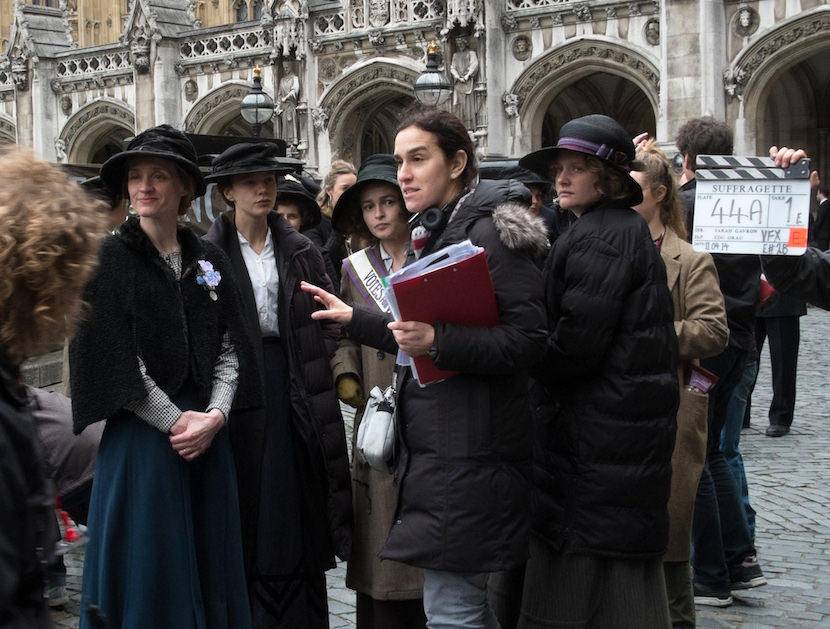

As I was watching Suffragette I felt quite astonished that this story hasn’t been told as a feature film before. I'm assuming you felt the same way?
I did. I couldn't believe that there had never been a big screen version of it. I think it is really because women's history has been so marginalized. I didn't learn it at school, I don't know whether you did, but it wasn't even mentioned at school when I was growing up.
You're obviously interested in telling this story and you had this band of women bringing it to the screen. Was that a nice parallel when you were filming?
Definitely, you look at the statistics of women and film and they're still really bleak. Year in, year out, it's between one and ten percent, more like one percent of films, directed by women. It did feel like we were in the suffragette spirit, we were breaking with convention and that kind of emboldened me, I think. Also, we have women not only as the producers and the writer but also many heads of department in roles where you don't often have women, like the production designer and the location manager and the costume designer and then so many women in front of the camera. There was this great sense of camaraderie; it was really a pleasure. The men too got very behind it. Brendan Gleeson, Ben Whishaw…they were very supportive.
You did do a lot of research before deciding which thread of the story to tell because obviously the movement went for a very long time and there were a lot of different elements to the suffragette story. How did you decide which thread to go with in the end?
Yes, we did, as you said. In the end we did almost six years of research. It was all about finding the way in. We considered for a long time, we talked about the best of the well known historical figures, obviously the Pankhursts are extraordinary, but we decided that to tell their story would have been to tell the story of exceptional women and women of privilege. One of the striking things about the movement was it brought together women of all classes despite this class apartheid that existed in Edwardian Britain. It felt more relevant to the audience today to tell the story of these working women who had lost so much, sacrificed so much, being the vanguard of change. These women with no platform, no entitlement: to see what had driven them. It felt like that would connect with audiences today.
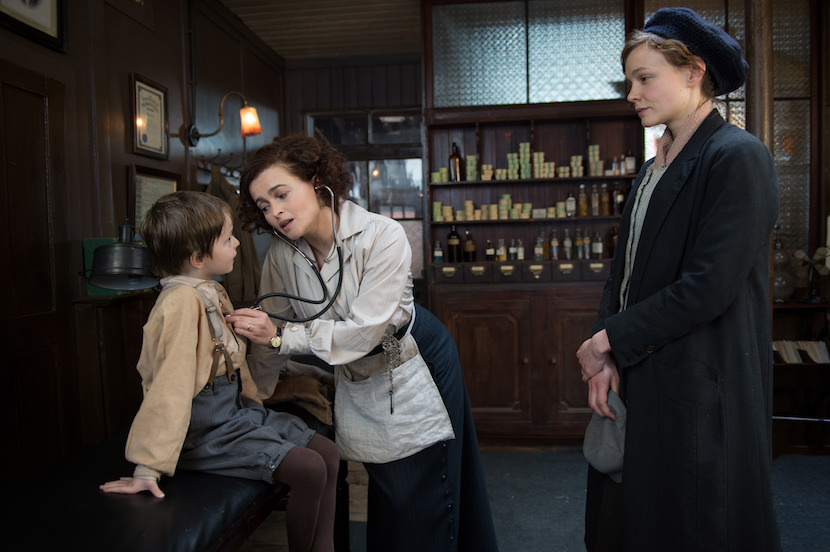

Carey Mulligan's character Maud Watts is a fictional character but she intersects with characters who were real life figures of the movement, like Emmeline Pankhurst etc. I understand you steered the writer, Abi Morgan, back to Maud from originally looking at making the film from the perspective of the upper class Alice.
Yes, Maud was a composite of a few different working women that we read about. What happened is that the first draft that Abi wrote, or a few drafts that Abi wrote, had the world and had Maud in it but she was a small character and it was focused around the character now played by Romola Garai, who is the upper-middle class woman. We suddenly kept on being very interested in this woman Maud and her story and it just felt like the more interesting and engaging and a more surprising way to go. Then Abi, to her credit, is an amazing re-writer and brilliant at revisiting drafts or just restarting, and she basically threw away a draft.
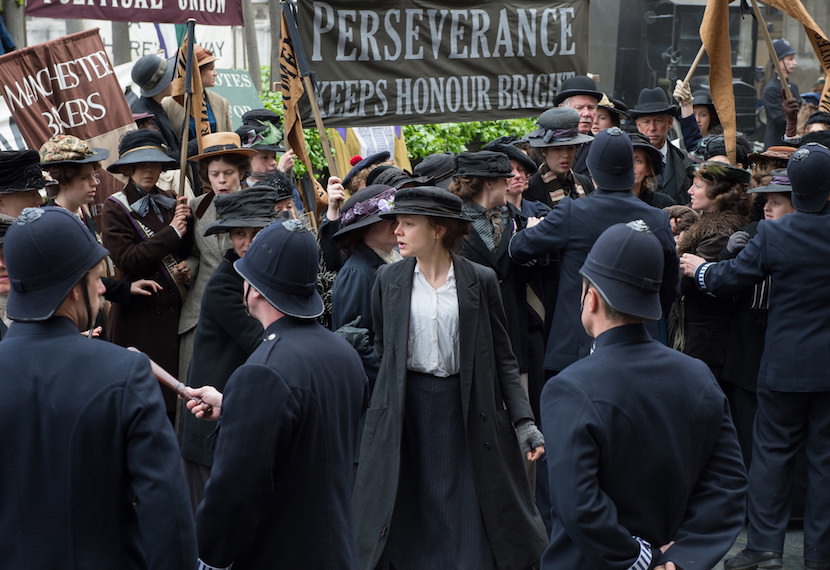

What do you think Carey Mulligan brought to the role? Obviously it was important that the audience connected very strongly with her and her moving through the story.
Yeah. I hadn't work with Carey before, Abi had worked with Carey on Shame and from having seen her work we really, really wanted her from the very beginning. From the minute we knew the story was about Maud we felt that she would be our Maud. The approach of the film was make to something very authentic, visceral and believable, and I think she somewhat inhabits characters so fully and can do so much with so little. I was really struck filming with her. You'd be on set watching her thinking, Yes, I'm getting this extraordinary emotion emanating from her even without words. Then we'd get in the edit suite and there would be even more going on than I'd realized. It felt like she could carry this film and also to work with, she was such a joy for me because she's such a great collaborator, and there was constant conversation on set about how to do it and what was right. We really saw eye-to-eye, and then she also contributed millions of ideas and that end piece of her voiceover at the end was a text that she found that we knew of it but we hadn't thought of putting it in the film. It was Olive Schreiner’s Three Dreams in a Desert. It had been a really key text for the Suffragettes because it was fable that spoke to them. She found it and we recorded a bit of it and then it felt right at the end of the film.
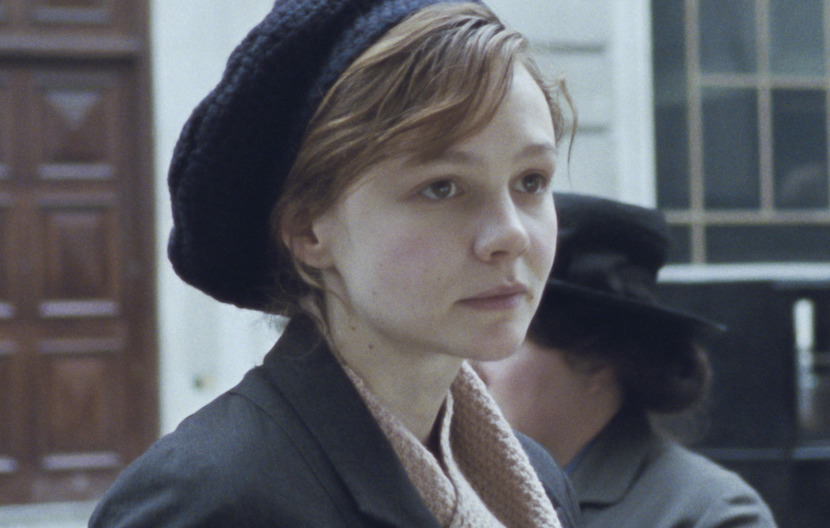

Was it her idea to offer the part of Pankhurst to Meryl Streep as well?
It was because that was the final piece of casting and we were talking about who could play that role. We knew that, it's obviously a very small part. We'd shoot it in one sequence and this charismatic leader would light up the screen. We wanted to get an iconic actress to do this. Carey was on a walk with her mum and apparently her mum said, "Oh, it has to be Meryl Streep". She agreed.
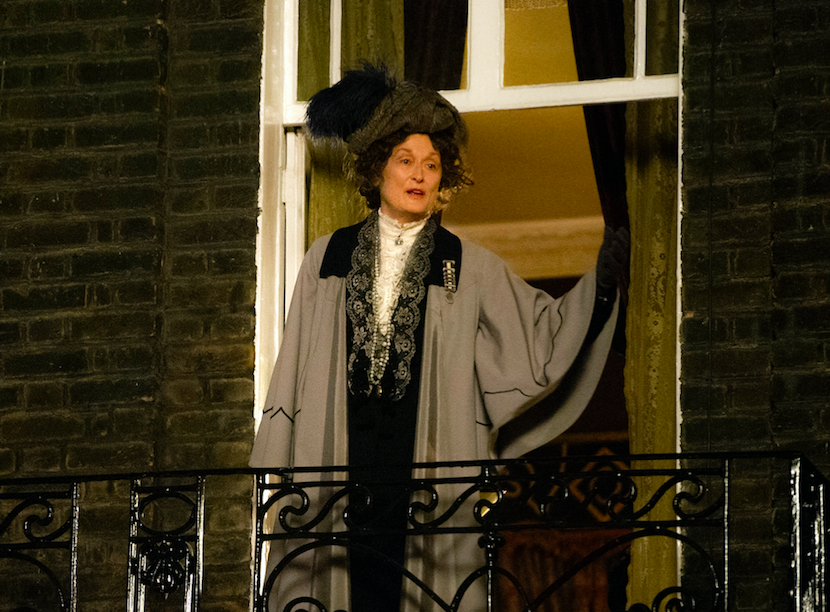

Obviously she was into the idea?
Yeah and she's such a great advocate for women filmmakers, also for women beyond filmmaking.
One thing about the film that was interesting is that a lot of period films that you see from that era have a feeling of distance, I guess, whereas this is very naturalistic. Was that something that you were conscious of doing so that the audience could really be in Maud's shoes?
Yeah. In a way, it was again, dropping back to this idea of wanting to make something relevant rather than a piece of history, wanting it to connect with audiences of today. It was the idea behind going for the working woman. That was a guiding idea that in a way, was very useful to have, because all departments followed it. We had these handheld cameras and the actors had quite a lot of freedom and we were trying to capture their performance rather than stage it for camera. The set designer was trying, wherever possible, to create these very real feeling sets, that were 360 degrees, so that the actors had freedom. That also was an enormous challenge because of course, 1912 England doesn't really exist anymore, it exists in patches but it’s modernized and gentrified and also a lot was destroyed in the Blitz. The great coup on the location front was when we got access to the Houses of Parliament, it was the first ever film to shoot there. Not only did we get access but then we put in a request to take in 300 supporting artists and stage an anti-government riot in the courtyard.
They must have been feeling some delayed guilt?
I think so. I think it was a real marker of how far we've come and, yeah, I think it felt like it was time to acknowledge these women.
I think people will surprised to learn just how militant the Suffragettes had to get for their cause, after doing peaceful protests for such a long time. It's a real story of action and I guess we're used to seeing men as the ones who go out there and actually perform the physical acts of bravery to fight for a cause. Is that was something that interested you about the story?
Yeah, it was very surprising to realize these incredible lengths they'd gone to. They turned to civil disobedience after 40 years of peaceful protest. They had achieved very little and there was an effective press blockade. Then this polite petitioning just resulted in broken promises. It escalated but they never harmed human life and they were very clear that they wouldn't and nobody died as a result of their actions except suffragettes themselves, but they certainly took risks. It was extraordinary to realize they'd gone to those lengths. The huge consequence of their action was that they ended up in prison and then started hunger striking.
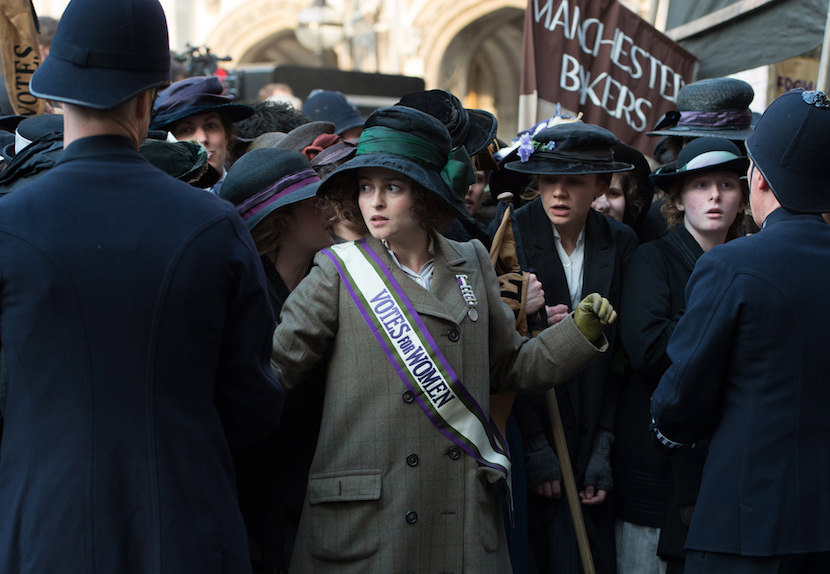

When we look at it from our perspective now the story is fundamentally relevant as a struggle for equality?
Yeah, I hope that it reminds everybody of how hard fought for this vote was and how much we must use it. It also reminds people of how global inequality is, and that people are still fighting today. How's it's ongoing and there are battles still to be fought and hopefully people feel empowered and will speak out and engage with change.



